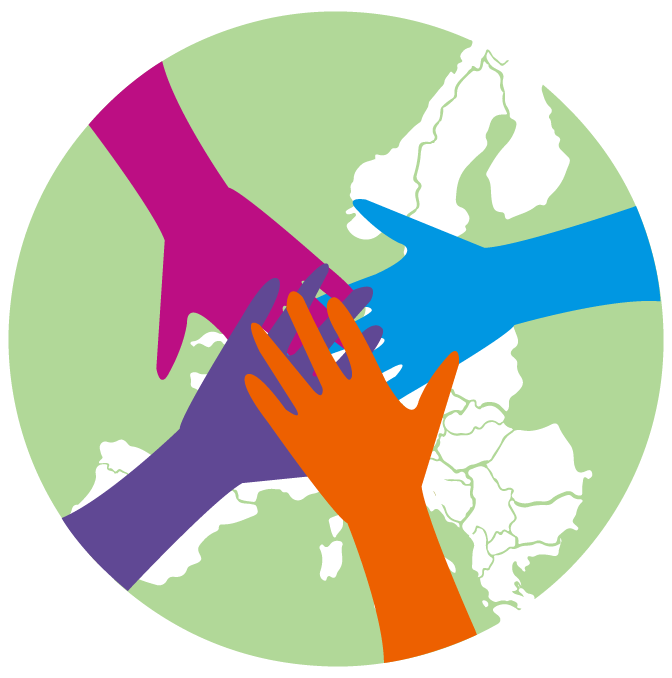 News
News
InclEUsion
„Wir sind alle verschieden, was großartig ist, weil wir alle einzigartig sind. Ohne Vielfalt wäre das Leben sehr langweilig.“
—Catherine Pulsifer
 News
News
„Wir sind alle verschieden, was großartig ist, weil wir alle einzigartig sind. Ohne Vielfalt wäre das Leben sehr langweilig.“
—Catherine Pulsifer
Check out our newsletters
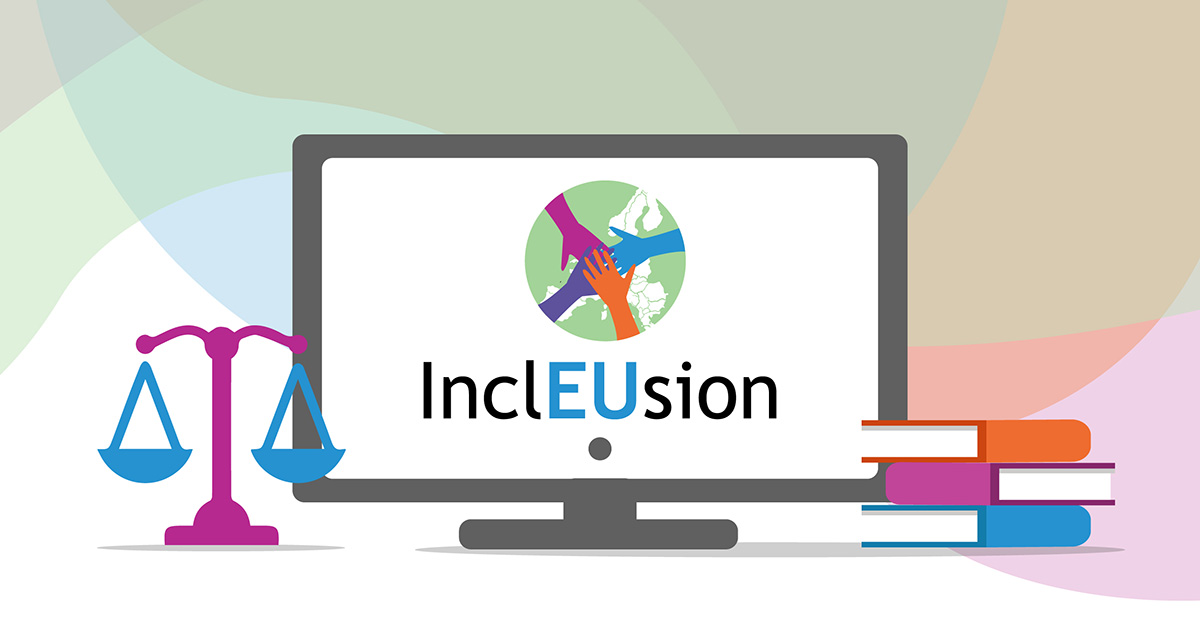
The 1st intellectual output of inclEUsion project is an Interactive Database, with essential information and directories for adult educators to use as reference and guidance.
The online database is called “ACCESS” and contains information from partners’ countries (Spain, Italy, Germany, Greece and Cyprus) and from European Union, regarding:
For each of the above categories, there are 2 distinct sections: one regarding issues which affect immigrants and another one regarding issues which affect people with disabilities.
“ACCESS” Interactive Database has been created as a comprehensive guide and resource for adult educators working with immigrants with disabilities (target group of inclEUsion project).
The Interactive Database is ready in all partners’ language and it is available on project’s website.
You can check it out here!

The European Commission has proposed a new Pact on Migration and Asylum to rebuild trust between Member States and confidence in the capacity of the European Union to manage migration.
The Pact covers different elements needed for a comprehensive European approach to migration, it establishes improved and faster procedures throughout the asylum and migration system, it sets in balance the principles of fair sharing of responsibility and solidarity.
With this Pact, the Commission proposes common European solutions to a European challenge. The EU aims to put in place a predictable and reliable migration management system and leave “ad hoc solutions” behind.
The management of external borders will be improved. The European Border and Coast Guard standing corps, scheduled for deployment from 1 January 2021, will provide increased support wherever needed.
A credible legal migration and integration policy will benefit European societies and economies.
The Commission will launch Talent Partnerships with key non-EU countries that will match labour and skills needs in the EU. The Pact will strengthen resettlement and promote other complementary pathways, seeking to develop a European model of community or private sponsorship. The Commission will also adopt a new comprehensive Action Plan on integration and inclusion for 2021-2024
(Source: European Comission)
Web info New Pact on Migration and Asylum

The online training course for adult educators of immigrants with disabilities is the second output of our project InclEUsion. The training course for adult educators aims to increase their knowledge and improve their teaching skills towards offering support, understanding their learners’ needs and creating an inclusive educational environment.
The modules of the training course are the following:
The training material will be in the form of videos. Partners have developed the English version of the training course and they are currently working on the development of the training material in Spanish, German, Greek and Italian.
The online training course for adult educators of immigrants with disabilities will be ready soon!
Stay with us for more news about project’s activities!
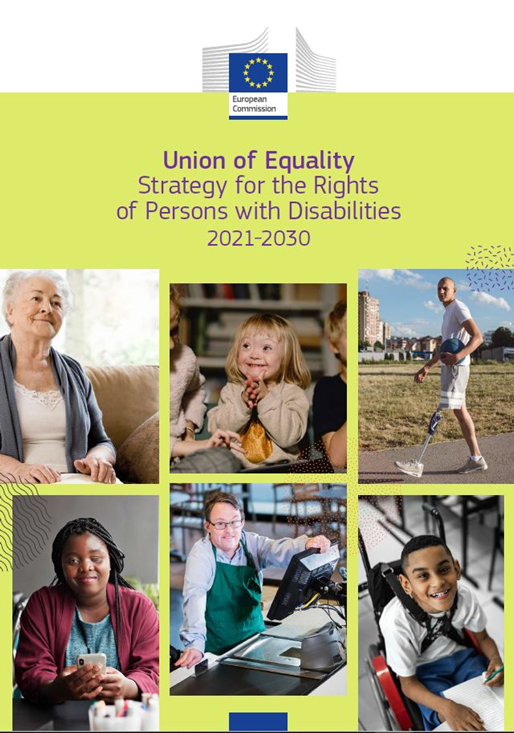
On March 2021, the European Commission presents an ambitious Strategy for the Rights of Persons with Disabilities 2021 – 2030 to ensure their full participation in society, on an equal basis with others citizens in the EU.
The new strategy builds on its predecessor, the European Disability Strategy 2010–2020, and contributes to the implementation of the European Pillar of Social Rights. It sets out key initiatives around three main themes: EU rights, independent living and autonomy, non-discrimination, and equal opportunities.
The aim of this Strategy is to progress towards ensuring that all persons with disabilities in Europe, regardless of their sex, racial or ethnic origin, religion or belief, age or sexual orientation enjoy their human rights have equal opportunities, equal access to participate in society and economy are able to decide where, how and with whom they live move freely in the EU regardless of their support needs and no longer experience discrimination
This document contributes to Building the Union of Equality, together with the LGBTIQ Equality Strategy 2020 – 2025, the EU Anti-racism Action Plan 2020 – 2025, the Gender Equality Strategy 2020 – 2025 and the EU Roma Strategic Framework.
As strengths and novelties of this new strategy, it should be noted that:
Priorities, Actions and Initiatives of the 2021-2030 Strategy:
The Commission calls of all Member States to contribute to the development of this new strategy.
In addition, the European Commission will provide support to the States for the elaboration of the strategies and action plans of each State to ensure the effective implementation of the United Nations Convention on the Rights of Persons with Disabilities and its implementation in the legislation of each State.
(Source: European Commission)
Strategy for the Rights of Persons with Disabilities 2021-2030: https://ec.europa.eu/social/main.jsp?catId=738&langId=en&pubId=8376&furtherPubs=yes
Strategy on the rights of persons with disabilities 2021-2030 (easy-to-read version): https://ec.europa.eu/social/main.jsp?catId=1535&langId=en
New about the presentation of the Strategy for the Rights of Persons with Disabilities 2021-2030: https://ec.europa.eu/social/main.jsp?langId=en&catId=1484&furtherNews=yes&newsId=9938
New about the evaluation of the European Disability Strategy 2010-2020: https://ec.europa.eu/social/main.jsp?langId=en&catId=1484&furtherNews=yes&newsId=9835
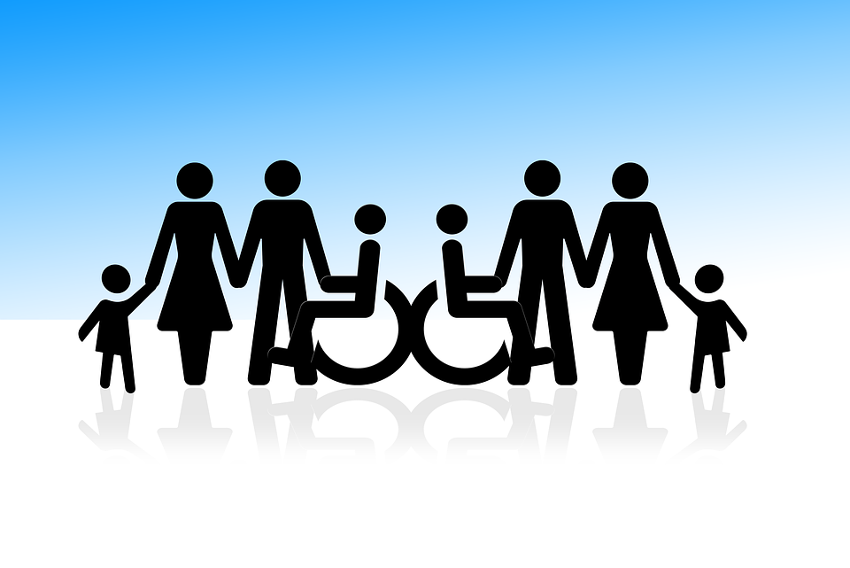
The second intellectual output of our project is an Online Course for adult educators, that will provide a set of tools and training modules that will cover the core topics of the project.
The online course aims to build the capacity of adult educators to design, adapt and deliver learning activities to migrants with disabilities. This will be done through increasing disability awareness and knowledge about discrimination, better understanding the user needs and improving teaching skills in order to create inclusive educational environments.
Practical suggestions, set of tools and case studies. The online course will be directly linked to the ACCESS database and will be structured into six modules.
Each module will contain a mixture of documents, video tutorials, references and tools that will be available on the platform.
Despite the COVID-19, the partnership continues working on planned activities and the online course is under development. The content will be in English and once the first development phase is completed, it will be translated into the partners’ languages.
Stay tuned, soon we will provide you with more information!
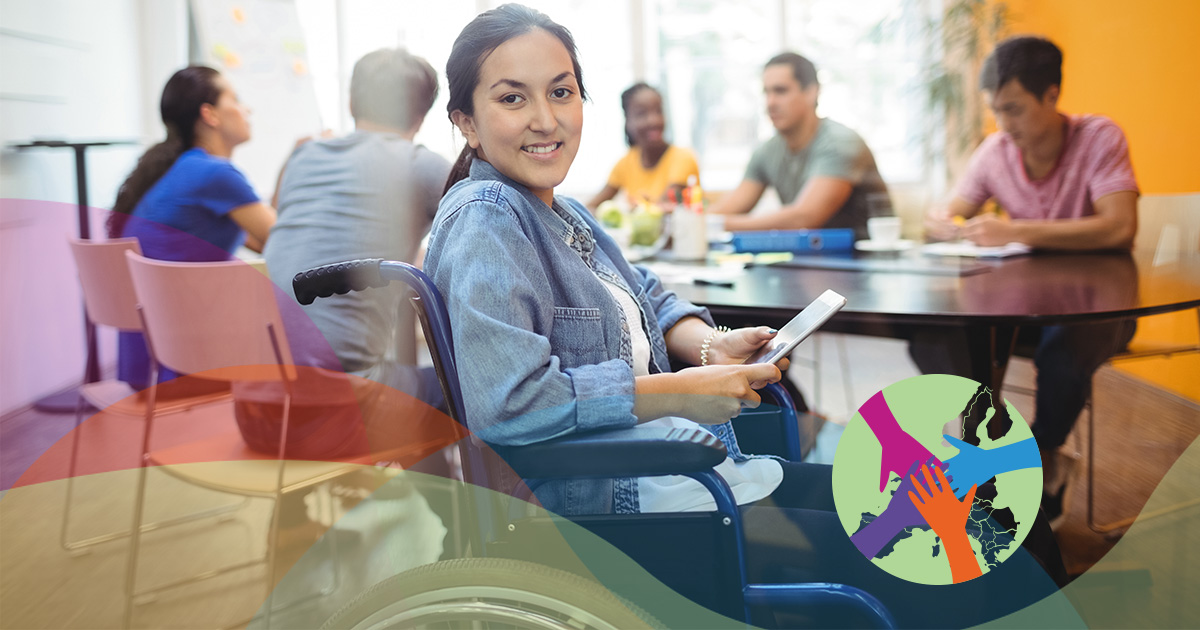
The unprecedented refugee crises in Europe led to the emerge of multiple issues that need our attention.
One of the biggest issues is, undoubtedly, the education of immigrants and refugees with disabilities. Across EU, there are national (and EU) legislations that protects the right of access to education for refugees and migrants, as also for persons with disabilities.
Additionally, there is a number of initiatives and projects courses available and on an international, European, or national level that focus either on the inclusion of immigrants or people with disabilities Though, the provision of adequate education to refugees/ migrants with disabilities is hindered because:
Therefore, our online course for adult educators aims to thrumble those barriers by building effectively the capacity of adult educators, who are designing and delivering learning activities to immigrants with disabilities
The pilot testing of the training course has already started in our partners’ countries (Germany, Cyprus, Italy, Greece and Spain). The results of the piloting phase will be used for the finalisation of the training course.
Stay tuned with us and learn for our upcoming activities!

Immigrants and refugees arriving in Europe to seek refuge face discrimination on many levels in their lives. The recipient countries protect them with laws, regulations, policies and care, taking into account their immigration status. However, the reality is more complicated, as they may face discrimination, not only because of their refugee / immigrant status, but also because of their gender, sexual orientation, disability, or other aspects of their identity.
Six years after the first migration flow, double discrimination seems to be growing in EU Member States. EU makes effort to socially include its new citizens, but this phenomenon makes it more and more difficult.
Focus on education!
Many EU countries have recently adopted anti-discrimination laws. The scope of such legislation is usually limited to discrimination in relation to employment and occupation. Nevertheless, there is still a lack of visibility and understanding of intersectional discrimination and thus, immigrants with disabilities face exclusion in sectors such as education, access to goods and services, social protection, etc. There are good practices in some countries to address and prevent this issue. For instance, Italian Ministry of education developed a strategy in 2015 to estimate the degree of discrimination and exclusion of foreigners with disabilities.
InclEUsion walks on the same path and can contribute to decrease the effects of double discrimination in education. The specific project objectives are as follows:

Immigrants with intellectual disabilities face an arduous and complicated adaptation process
5% of immigrants who come to Spain have some type of disability, in real figures it would be about 225,000 people. Of this percentage, there is no exact figure that specifies how many of them have intellectual disabilities. Still, those with intellectual disabilities have more adjustment problems than others. Explaining yourself correctly, expressing your own feelings and giving an interpretation of what is happening around you makes it difficult to be understood and helped. Their disability aggravates their situation and exposes them to double discrimination.
People with intellectual disabilities are often people who are in a situation of illegality, they do not have a health card, a residence permit or a certificate of disability. All these issues impede the treatment of the disability and hinder the process of adaptation and integration in the new environment.
The three key factors for the integration of an immigrant person are: language, work and access and participation in social networks. However, the process for an immigrant with an intellectual disability is even more complicated. Learning a new language is more difficult for them and that means that their access to the labor market is also difficult. As for access to social networks, it will depend a lot on the culture of the country of origin, on the same family with which they live and on equal opportunities.
Despite all the factors that could favor the situation of immigrants with intellectual disabilities would be the following: fight against stereotypes of people with disabilities created by the media, greater investment in aid to adapt media social and health intervention, and finally, the creation of policies committed to dealing with immigration.